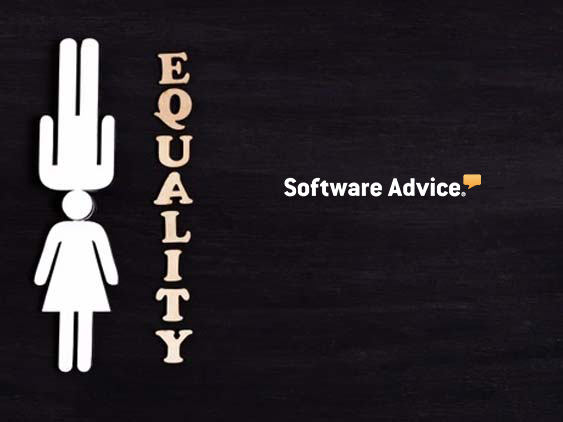Marginalized Employees Say Remote Work is More Equitable, but at the Cost of Hiding Their Authentic Selves
A majority of LGBTQ, 55+, minorities, women, and disabled workers all report hiding their authentic selves while working remotely to avoid discrimination and bias
As HR departments work to make their organizations more equitable and inclusive, new research from Software Advice suggests that remote work may at first seem like the best format for reducing workplace bias and discrimination, but survey data reveals it often means employees are sacrificing their true identity at work.
“But, DEI initiatives don’t really work unless employees feel safe to be their authentic selves.”
This survey analyzed employee responses from groups often impacted by negative bias and discrimination in the workplace, including women, employees aged 55 or older, LGBTQ workers, racial minorities, and those with a disability. Across all minority groups surveyed, remote workers are most likely to agree that their employer treats every employee fairly, compared to those who work hybrid or on-site. This may be due to their ability to customize work environments to individual needs, managers measuring work more fairly through outcome-based metrics, or a reduction in toxic behaviors overall.
HR Technology News: Understanding the Dangers of a Drawn-Out Hiring Process
However, marginalized employees working remotely also admit to lying about or omitting a part of their identity at their current job out of fear of discrimination, including:
- 71% of employees with disabilities
- 65% of employees 55 years or older
- 64% of women
- 64% of LGBTQ workers
- 57% of racial minority workers
Women in particular are uncomfortable bringing their full selves to work. Over two-thirds (71%) of women who work remotely say they’re afraid to be their authentic selves at work, compared to 64% and 57% of women who work on-site and in a hybrid format, respectively.
While on-site employees may be more honest about their identities, it isn’t always by choice. They may face more discrimination because they can’t hide who they are in-person.
HR Technology News: HR Technology Highlights – HR Tech Daily Round-Up For 6-July-2022
“With more employers implementing remote work permanently, it’s encouraging to see that minority workers believe remote work is more equitable,” says Brian Westfall, principal HR analyst at Software Advice. “But, DEI initiatives don’t really work unless employees feel safe to be their authentic selves.”
Remote work isn’t a magic solution for encouraging workplace inclusivity. HR leaders must intentionally act to ensure marginalized employees working from home feel seen and included for who they are. Examples include forming employee resource groups, setting the right tone during onboarding to encourage new hires to share their own perspective, and diversifying remote leadership.
HR Technology News: Automation Workz Urges HR Leaders to Capitalize on Front-Liner Revolt to Catapult to CEO
[To share your insights with us, please write to sghosh@martechseries.com]

